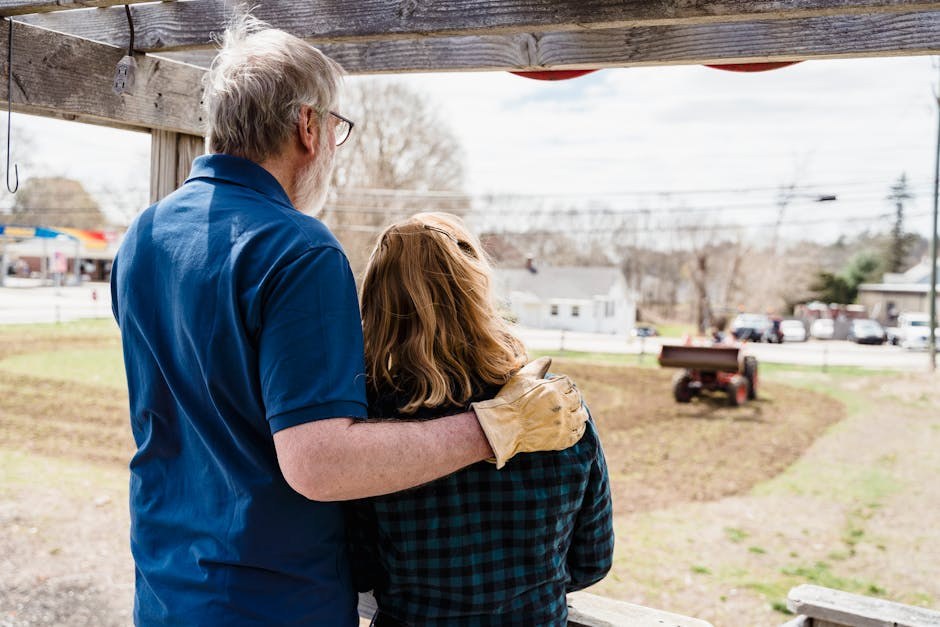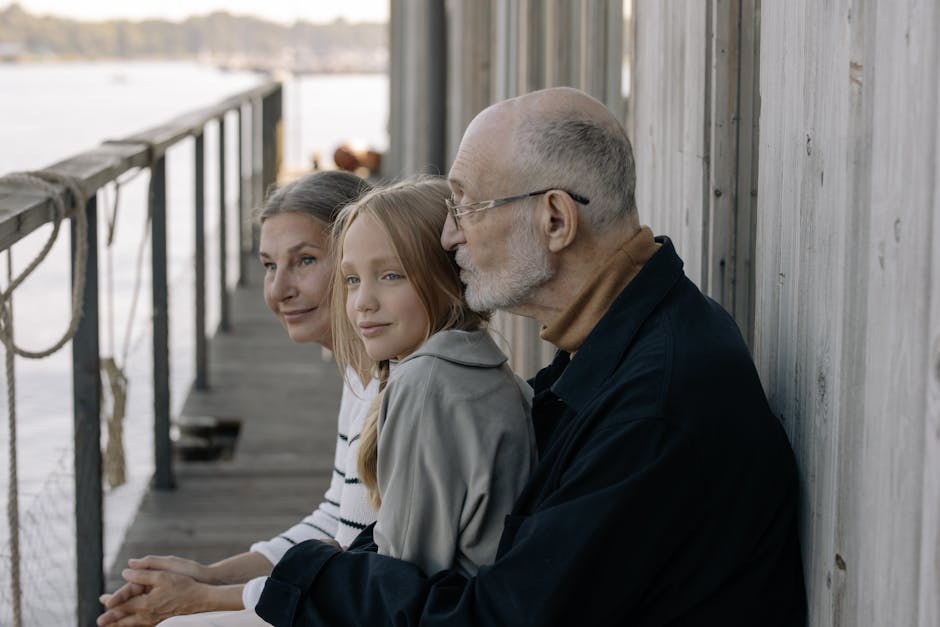You walk home rehearsing every moment, replaying jokes and glances, deciding whether the chemistry you felt was real or nerves in disguise. That swirl of anticipation is normal – a first date is a loud chorus of hope, self-doubt, and projection competing for attention. When the adrenaline fades, though, clarity matters. This piece invites you to put the evening under a kinder, sharper lens, so you can be honest with yourself without turning that honesty into self-criticism.
Why our brains embellish the first impression
After a first date, many of us declare it “pretty good” by default. That instinct is less about accuracy and more about relief – the build-up, the outfit, the logistics, the small talk, the fear of awkward silences. Surviving all that feels like a win, so the mind rounds the night up from “fine” to “promising.” Sometimes there is a real spark; often there isn’t. Plenty of initial meetings never become second meetings – roughly a fifth progress any further – yet immediate optimism can blur the details. We confuse our relief with connection, as if a smooth conversation equals compatibility.
This rounding-up happens because effort begs for payoff. If you spent days messaging, picked a place, managed the nerves, and made it through an hour or two, you want the story to matter. The mind resists labeling a costly experience as neutral – or worse, a mismatch – so it brightens what was merely okay. On a first date, even a single sweet remark can eclipse ten moments of unease. Later, once the outcome is obvious – ghosting, drifting, or an honest “this isn’t a fit” – the red flags you muted earlier step forward with perfect clarity.

The difference between pleasant and promising
A pleasant first date is not the same thing as a promising one. Pleasant means conversation flowed, you both laughed a bit, the time didn’t drag, and no one was unkind to the server. Promising means your values seemed to rhyme, you felt curious rather than desperate, and you left wanting to know this person’s world rather than just wanting validation. Those are different categories. We often mislabel pleasant as promising because it hurts less than admitting we’re still looking.
There’s no shame in enjoying a polite hour and deciding it’s not your match. In fact, that’s a healthy outcome for a first date. Measuring the night accurately protects you from piling fantasies onto fragments. It also saves your future self from staying too long with someone who looked good on paper but didn’t light up your intuition.
An honest debrief you can do alone
Clarity doesn’t arrive by accident – you invite it. Try this calm, post-event check-in after a first date. No interrogation, no courtroom vibe. Just you, a cup of tea, and plain observations.

Name what you actually felt. Not what you hoped to feel, not what you think you “should” have felt. Did you feel energized or drained? Curious or merely polite? Excited to share more, or relieved the check arrived? Notice your body’s truth – it rarely speaks in embellished paragraphs, only signals. On a first date, your body often catches what your optimism edits out.
Write down three specific moments. Details anchor memory. “We laughed” is vague. “They teased the barista after a mix-up” is concrete. “They asked follow-up questions about my work” is concrete. If your recollection of the first date is all mood and no moments, you might be remembering hope more than behavior.
Separate charming from compatible. Charming is banter, timing, and confidence. Compatible is empathy, curiosity, and shared priorities. The first date can offer both – or only one. If they were charming but interrupted often, note it. If they were shy but thoughtful, note that too.

Check for quiet dissonance. Did they make digs at an ex, brag about “winning” arguments, or dismiss people in service roles? These are small windows into large rooms. If your instinct flinched during the first date, honor that flinch before you bury it beneath attraction.
Measure generosity. Not by gifts, by grace. How did they handle minor friction – a long wait, a wrong order, a viewpoint they didn’t share? A generous presence during a first date suggests generosity later when stakes rise.
Ask what you softened to make it work. Everyone compromises on preferences – location, décor, timing. Beware compromising on principles. If you found yourself rationalizing a value gap during the first date, that’s data, not drama.
Rose-colored glasses – how they show up
The classic distortions after a first date are subtle. You highlight a funny story and forget a dismissive aside. You remember the compliment on your shoes and skip the part where they mocked a coworker. You praise their ambition and skim past how they spoke about family. None of this makes them “bad”; it simply reveals that your attraction prefers bright colors. Attraction isn’t a verdict – it’s a signal to gather more information with your eyes open.
Sometimes the distortion is logistical. You rearranged your week, traveled across town, and braved weather. Effort creates attachment. When the other person drifts afterward, the sting can feel bigger than the first date warranted because you’re grieving effort, not a bond. Naming that distinction softens the blow: you’re upset because you invested, not because you lost “the one.”
When the goodbye is warm – and still not right
Many mismatches end with kindness. You say, “This was fun, we should do it again,” because it’s easier than naming uncertainty. The line hangs there like a promise; you go home smiling; then silence. It’s tempting to rewrite the first date as a near-miss with destiny because the farewell felt sweet. Remember: a considerate goodbye is good manners, not a contract.
If you later recall contradictions – calling you the wrong name, opinions that clash with who you are, or a casual put-down of someone close to them – those memories are not betrayals of your optimism. They’re the mind rebalancing the ledger. A first date can be enjoyable and still not align with your life. Both truths fit.
A gentle audit of values
Values are the underground map you navigate without noticing. After a first date, test for alignment in quiet ways:
Respect: Did they treat time, boundaries, and other people with care? A person who respects a stranger’s time will likely respect yours.
Curiosity: Did they ask questions and listen – not just wait to talk? A curious presence on a first date foreshadows a curious partner.
Kindness under stress: Traffic, delays, a misplaced order – small frictions that reveal big patterns. Did they reach for humor or scorn?
Consistency: Does what they say about past relationships match how they behave tonight? Story and action should rhyme.
Desperation vs. desire – telling them apart
The desire to love can dress up as the desire to love this person. After a first date, insecurity whispers, “Take what you can get.” But there’s a sturdy middle path between cynicism and neediness – interest without urgency. You can be hopeful without bargaining away self-respect. When you notice a surge of attachment to someone you barely know, ask whether you’re connecting with them or with a fantasy stitched from projections.
How to tell? Desire is curious and observant. Desperation is impatient and clinging. Desire says, “I’d like to learn more.” Desperation says, “I need this to work so I can stop searching.” The first date is a tiny sample size – treat it as such. You’re not choosing a partner; you’re deciding whether a second conversation makes sense.
What to do if you’re disappointed
If they don’t text, or they gently pass, the temptation is to comb through the first date frame by frame hunting for your mistake. Most of the time there isn’t one – just two decent people discovering they’re not a fit. Let yourself feel the sting without inflating the story. You can grieve a narrative you imagined and still appreciate the experience for what it taught you about your taste, your boundaries, and your energy.
Instead of spiraling, try this brief reset ritual. Give yourself a night off from analysis. Return the next day and write a few lines about what worked – your humor landed, you asked thoughtful questions, you noticed the décor – and what didn’t. Decide one small thing you’ll tweak next time: maybe you’ll choose a quieter venue, arrive with two open-ended questions, or cap the first date at 75 minutes so you leave with energy. Small adjustments compound courage.
Clues you might be rounding up too much
Want a shortcut to self-honesty? Look for these telltale signs that you’re polishing a merely okay first date into something grander:
Selective memory. You recall the compliments but not the condescension. Balanced recall is a better guide.
Future-tripping. You’re naming imaginary kids or planning a seasonal getaway after one first date. Sweet, but premature.
Excusing red flags. “Everyone jokes like that,” or “They were just stressed.” Maybe – or maybe you’re minimizing.
Outsourcing certainty. You need friends to vote yes before you’ll trust your own “maybe.” Feedback can clarify, but your gut leads.
Attachment to effort. You want it to work because you invested time, not because the connection feels mutual. Effort is sunk cost – the first date owes you nothing.
Reframing the goal of the evening
Redefine success. The purpose of a first date isn’t to secure a second at any price – it’s to gather honest information while treating each other with dignity. When you frame it this way, you walk in lighter and walk out clearer. You can enjoy flirtation, humor, and the novelty of a stranger’s stories without turning any of it into a binding narrative.
This reframing also lowers the stakes. If the vibe is off, you learned something quickly. If the vibe is neutral, you can end the night with a smile and keep moving. If there’s a glow of genuine curiosity, you explore with patience. The first date becomes an experiment, not an exam.
Questions to ask yourself the next morning
Sleep is a natural truth serum – it turns yesterday’s fireworks into today’s embers. The morning after a first date, ask:
Did I like who I was with them? The right person brings out a relaxed, playful version of you. If you performed the whole night, notice why.
What surprised me? Delight and surprise are cousins. A small, sincere surprise can be a quiet green flag on a first date.
What do I want to learn next? If you can’t think of anything, your interest might be politeness in costume.
What did my body say? Calm? Tight? Buzzing? Your body’s vote counts – sometimes more than your script.
When to give it another shot – and when to bow out
Give a second meeting a chance if you felt steady curiosity, experienced small moments of care, and sensed you were both present. Do not confuse “no obvious dealbreakers” with momentum; neutrality is not a green light by itself. If disrespect surfaced, if your boundaries were nudged aside, or if you left the first date feeling smaller, bow out gracefully. “Thank you for the evening – I don’t feel a romantic fit” is kind and sufficient. You owe no dissertation.
When you do continue, reset to observation mode. The second meeting is where consistency proves itself. You’re not trying to confirm your fantasy; you’re checking whether the warmth you felt on the first date repeats when the variables change – different venue, different topic, different stressors.
How to keep honesty from turning harsh
Honesty should be a supportive mirror, not a megaphone for criticism. When you review a first date, avoid global judgments like “I’m bad at dating” or “People are hopeless.” Those are shields against vulnerability. Instead, describe one behavior specifically – “I interrupted when I got excited” – and choose a gentle correction – “Next time, I’ll pause and ask one more question.” Precision is kindness.
Offer the same grace to the other person. A clumsy joke may not define them. Nor does an anxious monologue. If you felt basic respect and a wish to connect, a second look can be worthwhile. If you felt dismissal, contempt, or cruelty, believe the data and release the story. The aim is not to punish yourself or them; it’s to free both of you to find better matches sooner.
Your story without the noise
Here’s the simplest way to cut through static. Write three sentences about the first date using only observable facts. Then write three feelings you had. Then write one next step you’ll take – reach out, pass politely, or sit with it another day. Keep this tiny ritual, and patterns will appear. You’ll notice what opens you up and what shuts you down. Over time, you’ll spend less energy guessing and more energy choosing.
A closing note on honesty with yourself
Self-honesty doesn’t require icy detachment – it asks for calm attention. You’re allowed to want connection badly and still be discerning. You’re allowed to be disappointed when a first date fizzles and still be proud of how you showed up. You’re allowed to laugh at the awkward bits, archive the sweet ones, and carry forward the lesson that clear eyes make lighter hearts. When you measure the night as it truly was – not as fear or fantasy insists – you make room for the kind of connection that can stand daylight, not just candlelight.
So ask yourself, gently: what really happened on that first date? What did you feel, what did you learn, and what choice honors you now? The honest answer – unpolished, specific, and kind – is the compass you can trust.